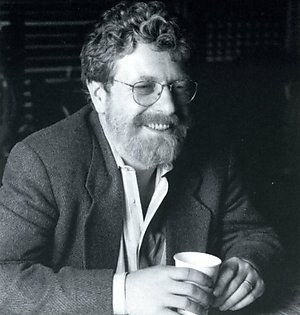Interview with a Jazz Maven: Michael Cuscuna
Earlier this year I had the good fortune to sit down for an hour with Michael Cuscuna, who is a veritable walking encyclopedia on everything jazz-related. Many will recognize Michael as one of the owners of Mosaic Records (www.mosaicrecords.com), one of the preeminent jazz reissue labels. (The Mosaic approach deserves an article of its own, given its phenomenal record of tracking down master tapes and reissuing box sets in CD and/or vinyl.) Michael is also one of the éminence grise behind the Music Matters Blue Note reissue project (along with Ron Rambach and Joe Harley…and Steve Hoffman and Kevin Gray). In fact, it was Ron who kindly provided me with the introduction.

Michael Cuscuna
Michael and I met at Mosaic’s HQ in an industrial part of Stamford, CT on a dark, chilly evening, and not surprisingly, we started at the beginning: Michael first became enamored of jazz at 13 (50 short years ago) via the medium of the long-playing record. As he comments: “It just grabbed me.” Once hooked, he stayed with the vein. Over the years Michael (who had developed a deep respect for the Blue Note label) met many jazz musicians and others who told him of sessions that had been recorded but never issued. He kept a notebook with this information in it. In the ‘70s, Michael found himself in the Blue Note vaults on Third Street off La Cienega in L.A…the story of how this came to be is classic…from the Mosaic website: “Charlie Lourie, a former jazz and classical musician and executive at CBS Records, accepted the job as head of marketing for Blue Note in late 1974. We met in Los Angeles in the Spring of 1975. I showed him my notebook, which by this time had grown to sizable proportions. He was so excited that the next morning a contract was drawn up and by afternoon, I was at last in the Blue Note vaults.”
Six years of what appears to have been bliss ensued. In the early days, Michael would send cassette tapes to jazz musicians he knew, in hopes that they would be able to identify side men from the varied sessions. Things became easier when he found Alfred Lion’s notebook, which recorded details of the sessions.
Alas, good things can come to an end: On Thanksgiving day 1981 Warner Brothers laid off Lourie. At this point, Michael and Charlie decided to “resurrect” Blue Note (then owned by EMI Capital) and to “exploit the back catalog”. While Warner chose not to formalize a contract, they did let them use the Blue Note back catalog and encouraged Mosaic’s box set approach.
Mosaic’s approach, whereby each set is limited to a fixed number, has driven secondary prices (particularly for the vinyl sets) higher and higher. For a time, Mosaic was issuing vinyl as a counterpart to its CD sets, but they no longer do this. Now, when they do issue vinyl, it’s in three or four disc sets, rather than the nine or 10 LP sets as in the past.
Not content to stop at Mosaic, Michael is also a key part of the Music Matters team. Joe Harley and Ron Rambach contacted him when they needed to “break down corporate fences” at EMI to get their hands on the Blue Note master tapes. Harley felt that Michael’s name “meant something” and sure enough, it did. Michael’s first job was to determine which albums still had first generation master tapes, and he has remained involved as successive reissues have emerged from the Music Matters team in Ventura, CA. In discussing the master tapes, Michael pointed out to me that many of the second generation tapes still sounded phenomenal, and attributed that to the “old mastering engineers” who really knew how to make proper tape copies. He feels that this is a skill that died out in the ‘70s.
Both the music industry and the high-end audio industry have changed in many ways since then. Michael noticed that at the last audio show that he attended, high-end music servers outnumbered high-end turntables. “We only listen to 24/96 in the studio” notes Michael, adding he is confident that “high res streaming will prevail”. When I ask him for how much longer Music Matters will issue vinyl, Michael is a touch indirect: “Vinyl is slowing down.” (Indeed, shortly before press date, Music Matters announced the end of the line for the Blue Note reissues: 13 additional releases over the next year—it will have been 101 in all; not a bad run.)
He is more direct on the future of jazz: Color him optimistic. He sees tremendous talent among the new generation of jazz musicians, noting that he is observing wonderfully talented artists coming up the curve. The jazz scene in New York City (a benchmark) is fantastic…and he suggests I attend “this evening’s concert at the Village Vanguard” featuring the Esperanza Spalding trio. Much more pessimism is placed on the future of recorded music. Michael believes that the music industry’s future is dismal, noting that artists will be marketing and selling their own work: The middle man will be cut out. Artists will “make as much money as before, but will not have the same global reach.” Already, he notes, musicians can sell a $2.00 CD at a concert for $18.00.
At the end, says Michael, it’s all about the music, which touches you emotionally in a unique way. Even bad music can transport the listener (so true, particularly with regard to ‘70s top-40 music in my case). On the other hand, musical tastes evolve. Something that resonated with you when you were younger may cease to be important to you over time. Classic jazz, for many of us, retains that “transportational” character however, and we’re fortunate to have such compendia of knowledge as Michael Cuscuna walking among us.



